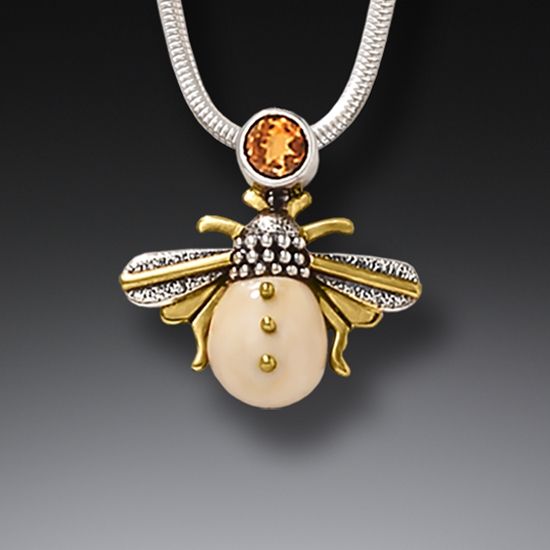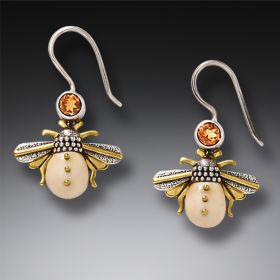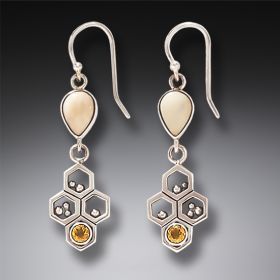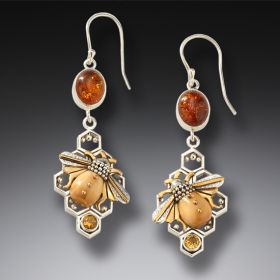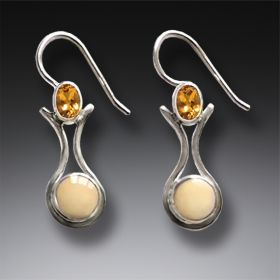Our citrine and silver bee pendant is carved from fossilized ivory and set with a mixed metal treatment that encapsulates the intrepid bee's minuscule beauty.
- Hand carved fossilized walrus ivory bee
- Faceted citrine accents
- Sterling silver setting
Bee Jewelry - Honeybee Pendant
Honeybee populations have been on the decline for some time now. What has been termed Honeybee Colony Collapse Disorder is still not completely understood by experts, but environmental factors and weather changes are undoubtedly playing a part. The honeybee is critical in supporting the food chain through pollination. Honeybees cross pollinate more than 100 fruits and vegetables that comprise a significant portion of our diet. Our bee jewelry line was inspired by our concern for their declining numbers and we aim to keep the conversation going toward finding a solution to this global problem.
The body of the bee is hand carved from fossilized walrus ivory, which is 500-3,000 years old. It comes from St. Lawrence Island, Alaska, where the native Yupik have exclusive rights to gather and sell this ancient material. Fossilized walrus ivory takes on a range of tones from cream to deep cocoa, depending on the minerals surrounding it in the soil.

